HARBOR PILOTAGE IN THE PHILIPPINES A REVIEW OF INTERVENTIONS IN LICENSING, APPOINTMENT AND CAPABILITY BUILDING OF HARBOR PILOTS
The Philippines is an archipelago of approximately 7,641 islands (NAMRIA, 2017) in the three major geographical sections – Luzon, Visayas, and Mindanao. Shipping is indispensable in the country’s trade and industry and, thus, a vital component in regional and national economic development. Pilotage service is one of the important complementary services to shipping and harbor pilots carry a significant role in ensuring the safe navigation of both foreign and coastwise/domestic ships seeking berths in the ports of the country whether private or government owned.
Pilotage districts throughout the Philippines have been established, the country being surrounded by navigable waters which conditions require pilotage service to enable the vessels to navigate safely therein (Rules and Regulations Governing Pilotage Services, the Conduct of Pilots and Pilotage Fees in Philippine Ports, 1985). As of December 2018, the total number of pilotage districts across the country under the jurisdiction of the Philippine Ports Authority (PPA) is twenty-two (22) with a sum of one hundred twelve (113) harbor pilots distributed in these districts (Updated Roster of Regular Harbor Pilots, 2018).
The harbor pilots in each pilotage district are charged with the duty to provide pilotage service to ships calling in the ports within the pilotage area. They provide a crucial service to the maritime industry by assisting ships to navigate through dangerous or congested waters, berthing the ships safely to ports. According to O’Loughlin (2016), the importance of pilotage to the maritime industry has not diminished with time. The physical and economic realities of today’s shipping industry make pilots more vital than ever for the delicate task of maneuvering ships of increasing size and advancing technology through risky and ever-changing territorial waters. Shipowners rely on their knowledge of the currents and tides and their effect on the vessel as well as of other dangers due to local conditions in the pilotage area that will impact on the vessel’s safety.
With the free movement of goods, services, investment, skilled labor, and freer flow of capital through the establishment of the ASEAN Economic Community in 2015, the number of foreign ships to transport import-export cargoes and people from one port to another within the Philippines will continue to increase. In 2017, the maiden voyage of the ASEAN Roll-on Roll-off (RORO) Sea Linkage Route between Davao–General Santos (the Philippines) – Bitung (Indonesia) was launched by Philippine President Rodrigo Duterte and Indonesian President Joko Widodo in Davao City. In the ASEAN Economic Integration Brief No, 1/2017, the Philippines is identified as a major milestone achieved by ASEAN in transport facilitation to enhance connectivity in the region. Meanwhile, PPA statistics show an upward trend in domestic trade by sea as reflected in the number of shipcalls and volume of cargo throughput, with 7% average increase, from 2015-2017. The increasing demand for domestic passenger and cargo vessels is expected to continue with the accelerated implementation of the nautical highway program by the present administration under the “Build, Build, Build†policy.
As the Philippines continues to integrate itself into the global trading system, these developments and trends in domestic and international seaborne trade require a robust and efficient maritime transport system that includes not only the improvement of port infrastructure, the building and operation of compliant ships, and organizational management system for port operations. Sustainable availability of competent and qualified harbor pilots who have highly specialized experience and local knowledge of the pilotage areas is of equal consideration too.
Harbor pilotage is one of the most important links for maritime safety and maritime commercial trades. The International Maritime Organization (IMO) as early as 1968 underscored the important role of harbor pilotage, recommending to Governments that they organize pilotage services in those areas where such services would contribute to the safety of navigation (IMO Resolution A.159, 1968). The actual economic and environmental risks, involving large ships, make the role of the pilot really essential, providing safety to the ship’s passage, handling, safety of life at sea and protection of the environment.
0 Comment(s)
Upcoming Event
Research Archives
- MANAGING THE THREATS OF COVID-19 TO SEAFARERS' HEALTH AND WELL-BEING: RESPONSE OF THE PHILIPPINE MARITIME INDUSTRY (PHASE 2)
- PHILIPPINE DOMESTIC MARITIME INDUSTRY'S COMPLIANCE WITH MLC, 2006: CHALLENGES OF IMPLEMENTATION
- ISSUES AND CONCERNS ON THE NON-RATIFICATION OF THE PHILIPPINES OF THE INTERNATIONAL CONVENTION ON STANDARDS OF TRAINING, CERTIFICATION AND WATCHKEEPING FOR FISHING VESSEL PERSONNEL (STCW-F)
- PHILIPPINE MARITIME MANPOWER FACTBOOK 2020 & 2021
- THE CAPACITY OF THE PHILIPPINE MARITIME INDUSTRY TO PRODUCE OFFICERS-IN-CHARGE (OIC) PER STCW REQUIREMENTS: FOCUS ON THE ONBOARD TRAINING (OBT) OF CADETS
- PHILIPPINE EMPLOYMENT LAWS RELATIVE TO SEAFARERS: FOCUS ON THE PHILIPPINE ARBITRATION SYSTEM AND AMBULANCE CHASING
- EMPLOYMENT ACCEPTABILITY OF WOMEN IN PHILIPPINE DOMESTIC SHIPS
- AUTONOMOUS SHIP TECHNOLOGY: ITS IMPLICATIONS TO PHILIPPINE MARITIME INDUSTRY
- REQUIRED NON-TECHNICAL (ESSENTIAL) SKILLS BY EMPLOYERS FOR SHIPBOARD EMPLOYMENT OF MANAGEMENT LEVEL OFFICERS
- PERCEPTION OF NMP FEMALE TRAINEES TOWARDS THE SEAFARING PROFESSION
- HARBOR PILOTAGE IN THE PHILIPPINES A REVIEW OF INTERVENTIONS IN LICENSING, APPOINTMENT AND CAPABILITY BUILDING OF HARBOR PILOTS
- NMP GENDER SENSITIVITY TRAINING FOR SEAFARERS (GSTS) COURSE: A PROGRAM EVALUATION
- SKILLS GAP ANALYSIS OF MARITIME FACULTY IN PHILIPPINE MARITIME HIGHER EDUCATION INSTITUTIONS
- RESPONDING TO THE FILIPINO SEAFARERS’ TRAINING REQUIREMENTS IN THE STCW 2010 MANILA AMENDMENTS: CHALLENGES AND OPPORTUNITIES
Subscribe to our Newsletter
Discover the latest upcoming and ongoing research. Don't forget to pre-register for the upcoming events.
Updates will be notified through your registered email to this portal.

